I love to travel. A year ago this week, I was in far-flung Patagonia. The virus was still an embryonic annoyance in Wuhan, China, and I was about as happy as a fly fisher can be — tucked into the passenger seat of a Toyota Hi-Lux, bouncing along rural Andean roads in search of trout with guides who knew where the targets were, what they were eating and how to put a silly American just happy to be alive in the right places at the right times.
Then, just a few months later, COVID-19 clipped my angling wings. A redfish adventure to coastal Alabama became the virus’ first victim in my world. A trip to southwest Florida to go after snook in the surf was the second casualty. By May, I’d lost three trips to warmer climes to pursue fish that we just don’t have in Idaho.
During the early months of the pandemic, I turned to flats fishing for carp in the Snake River — they aren’t bonefish and the river isn’t a Bahamian flat, but if you squint a little and look out across the flat, you can entertain your imagination long enough to keep you sated. I spent my early summer chasing bass, also in the Snake. A typical Idaho summer ensued. The only thing that was markedly different is that I was here to experience every single day of it. No travel. No plane tickets with my name on them. No North Woods lodges. No Deep South springtime evenings spent sipping whiskey on the porch under live oaks draped in Spanish moss. No sunny mornings spent eyeing the second swell of the surf for wary snook, speckled trout or mackerel. No kayak rides along the fringes of the Laguna Madre.
The virus kept me home. Grounded. And now, winter is setting in with the only relief in sight coming in the form of scientific marvels — promised vaccines that could be 95-percent effective, if we can figure out how to get them from a deep freeze into enough arms to achieve immunity from a killer virus that has changed our world and likely changed it forever.
While I wallow in privileged self pity, it’s important to note that devoted travelers like me aren’t the only sufferers when it comes to a reduced number of tourists boarding planes, taking cruises or filling fishing lodges. The destinations themselves, that depend on tourism dollars for economic survival, have all taken a hit from COVID-19. According to the United Nations World Tourism Organization, international tourism arrivals dropped 93 percent last June when the virus took hold worldwide. In just the first six months of 2020, the UNWTO reports, the international travel industry reported 440 million fewer international travel arrivals from years past, and a loss of $460 billion in tourism revenue. For perspective, that’s five times greater than the loss of revenue experienced in 2009, during the global economic and financial crisis.
Just counting the general lack of international tourism in the United States, the country’s travel industry is on pace to lose about $155 billion this year. Overall, tourism spending in the U.S. dropped 31 percent the first half of 2020. The worst-case scenario gamed out by the World Travel and Tourism council has the U.S. losing more than 12 million jobs thanks to the coronavirus outbreak.
Of course, things are more complicated than the data shows, more nuanced.
I’ve checked with friends in the industry who are warily approaching the 2021 travel season (right about now is when plans for the coming summer are concocted and put into motion — fishing lodges must be contacted and secured, and travel schedules must be compared and reservations made, etc.). One contact in Whitehorse, in the Yukon territory of Canada, noted that the virus is virtually non-existent in her community and folks who live there aren’t necessarily excited about having it introduced via travel writers or tourists heading their way en masse this coming summer just to have a beer at the Dirty Northern Bastard before they fly out to a remote pike camp in the middle of nowhere.
Kay Maghan of Orange Beach and Gulf Shores Tourism in coastal Alabama noted that COVID-19 was just part of a devastating double-whammy in her region — just as tourism was regaining its stride along the Gulf Coast after the spring shut downs, Hurricane Sally arrived on Sept. 16 and hammered the area, damaging marinas, shuttering businesses and inflicting grave damage on hotels, condos and beach homes. The area, known by fly fishers for its redfish and speckled trout fisheries (see my cancelled trip last spring), actually weathered the pandemic better than most, Maghan said, but Sally was a gut-punch. Nevertheless, Maghan says, her organization is preparing for another typical tourism season, although it may be a bit subdued because area colleges and universities aren’t likely to send students on a formal weeklong spring break.
“One thing the virus did do,” Maghan said of the spring shut-downs along the Gulf Coast, “was remind people who live in communities like ours just how important tourism is to the economy. When people don’t show up and fill the restaurants and bars, it becomes pretty obvious to everybody just how important tourism is.”
Across the industry, plans are being tentatively put into place, and smart destinations are likely to require American visitors to their far-flung shores to achieve immunity through vaccination (no, the “I had it and recovered from it last summer” excuse probably won’t fly). But a vaccine isn’t going to just bring this virus to a halt, and it’s going to take more than one “travel season” to rescue the industry.
Dan Vermillion who runs his family’s Sweetwater Travel Co. based in southwest Montana, but with lodges and fly fishing properties all over the globe, noted that his business has survived the COVID-19 outbreak because it’s established and doesn’t carry too much debt. That said, Sweetwater lost hundreds, if not thousands of bookings over the course of 2020 thanks to the outbreak. The company’s lodge in the Bahamas alone, had to either cancel or reschedule more than $1 million in bookings between March and June when the world was first coming to grips with the pandemic.
The challenges continued, with lodges in British Columbia generally off limits and more far-flung destinations, like trips to English chalk streams or to Mongolia in search of giant taimen, were simply shuttered.
“I’ve never worked so hard to lose money like I did this year,” Vermillion said. Even so, he noted, he and his company have been pretty lucky. With help from the Payroll Protection Program and having the business on sound financial footing to start with, Sweetwater was able to keep its employees on the payroll, meet insurance commitments and generally survive into June, when the company’s home state of Montana reopened and as then subsequently flooded by anglers and other tourists who could drive to the Treasure State for a vacation in lieu of hopping a plane to somewhere else.
“We kept our guides busy,” Vermillion said, but he also noted that the influx in pandemic-inspired tourism to Montana might have been a blessing in disguise.
“After 2017, 2018 and 2019, we all thought that tourism was going to be the great sustainable economy for Montana,” he said. “I think we all got a preview this year, and we all said, ‘So this is what Montana’s going to be like in 20 years.’ We probably need to evaluate the impacts that are coming to ensure we can still offer the experience we offer today years from now.”
Sweetwater was able to roll over much of its 2020 business to 2021, but there’s no doubt the outbreak had a big impact on the company’s financial well-being.
“I’ve been talking to people in the industry, and we have said that if we have another year like 2020, we’ll all be operating in the red,” Vermillion said. There is reason for optimism, though. In England, where Sweetwater takes anglers to fish for browns in the world-renowned chalk creeks, Vermillion says his folks there expect the country to be 100 percent vaccinated against the virus by the end of March.
In other places, like Canada, Americans still aren’t allowed to visit, and other worldwide destinations may be slower to open back up to adventure travelers.
It’s not all gloom and doom, and if you’re an angler or a hunter, you’ve likely noticed a significant uptick in fishing and hunting close to home (even if you don’t live in Montana). Anecdotally, I certainly did, even on my out-of-the-way fishing destinations where I don’t often see other other anglers. Some states, like Minnesota, have seen a big uptick in fishing license sales — 45 percent. It makes sense. While traveling to far-flung destinations is likely not possible for most, given the restrictions that have been in place due to the outbreak, taking advantage of “backyard” destinations is probably filling that void.
While the tourism industry struggles with virus-related challenges as a whole, the recreational vehicle industry is booming. To be fair, however, it’s been booming for a while.
“The RV industry has experienced strong consumer growth over the past 10 years, but the recent soar in consumer interest in RVing driven by the COVID-19 pandemic has led to a marked increase in RV shipments to meet the incredibly strong order activity at the retail level,” said RV Industry Association President Craig Kirby in a news release. This year alone, RVIA predicts a 4.5 percent gain in shipped RV units, and projections for 2021 are even stronger, with more than 500,000 units expected to ship by the end of next year (about 430,000 units shipped this year).
“This new forecast confirms what we have been seeing across the country as people turn to RVs as a way to have the freedom to travel and experience an active outdoor lifestyle while also controlling their environment.”
For now, I’m not pressing it. I’m prepared to stay home, stay safe and continue working remotely, just like almost everybody else is doing in the face of this outbreak. And, of course, I still have my little camper, which I will no doubt put through its paces again this coming year.
Travel to more far-flung places may be a part of my coming year. It may not. I do know that I’ll accept the needle in my arm just as soon as I’m able to get in line for the vaccine, especially if it makes it easier to board a plane or visit a remote fishing lodge.
For now, I’m looking forward to carp season in a few short months. That’s a trip I’ll happily take.


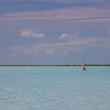
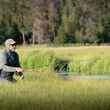
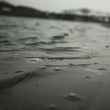
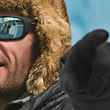

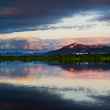
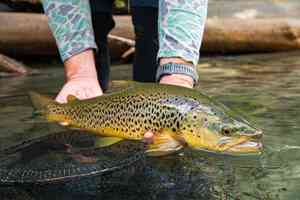


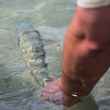
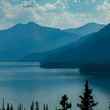

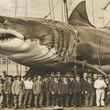
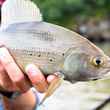
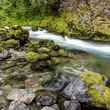


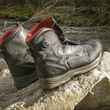
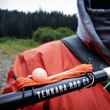



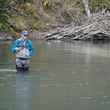
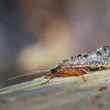
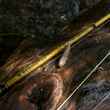
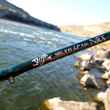
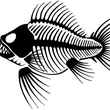
Comments
Edward Gannon replied on Permalink
Forgive me for not shedding tears. I am among those who cannot afford to Island-hop the South Pacific for Permit, jet off to Patagonia for the "other" Summer, or Range Rover my way around Slovenia with a guide every day. Your article comes off a little elitist and snobby.
Chad Shmukler replied on Permalink
James Heimer replied on Permalink
My wife and I managed a trip to an Alaskan Lodge on Lake Iliamna in August. We had planned that trip for a long time, and we were determined to make it. We worked closely with the lodge owner to make sure we were up to date on the latest COVID requirement, which was basically to have a negative PCR test within 72 hours of departure from the lower 48. In August, this was problematic, as most testing stations required you to be showing symptoms in order to get a test. Fortunately, we were able to find a private lab that could promise a 24 - 48 hour turn around, but it cost us $500.
We submitted our test results on line and made it through the check point on arrival. We had to spend a night in Anchorage, which had just locked down its restaurants, so we were limited to take-away in our hotel room.
The next day we flew out to the lodge, and once there found that we were two of the three guests (all tested COVID free, as were the lodge employees) booked in to the 12 person facility. As the week progressed, several people due in the next week called to cancel, but the lodge owner expected others would neither call nor arrive.
One benefit was the absence of crowds. My wife is an avid amateur nature and wildlife photographer, and catching the bears at Brooks Falls has been on her to-do list for some time. Whereas in a normal season there may be over 50 float planes at the lake and 100 or more people queueing up for their 20 minutes on the platforms overlooking the falls, we were one of three planes. After the "tourists" had had their fill of looking at bears, my wife had the platform to herself for hours.
The fishing was only marginal. Nothing to do with COVID, but the silvers had just not gotten their act together and begun their run upstream.
Pages